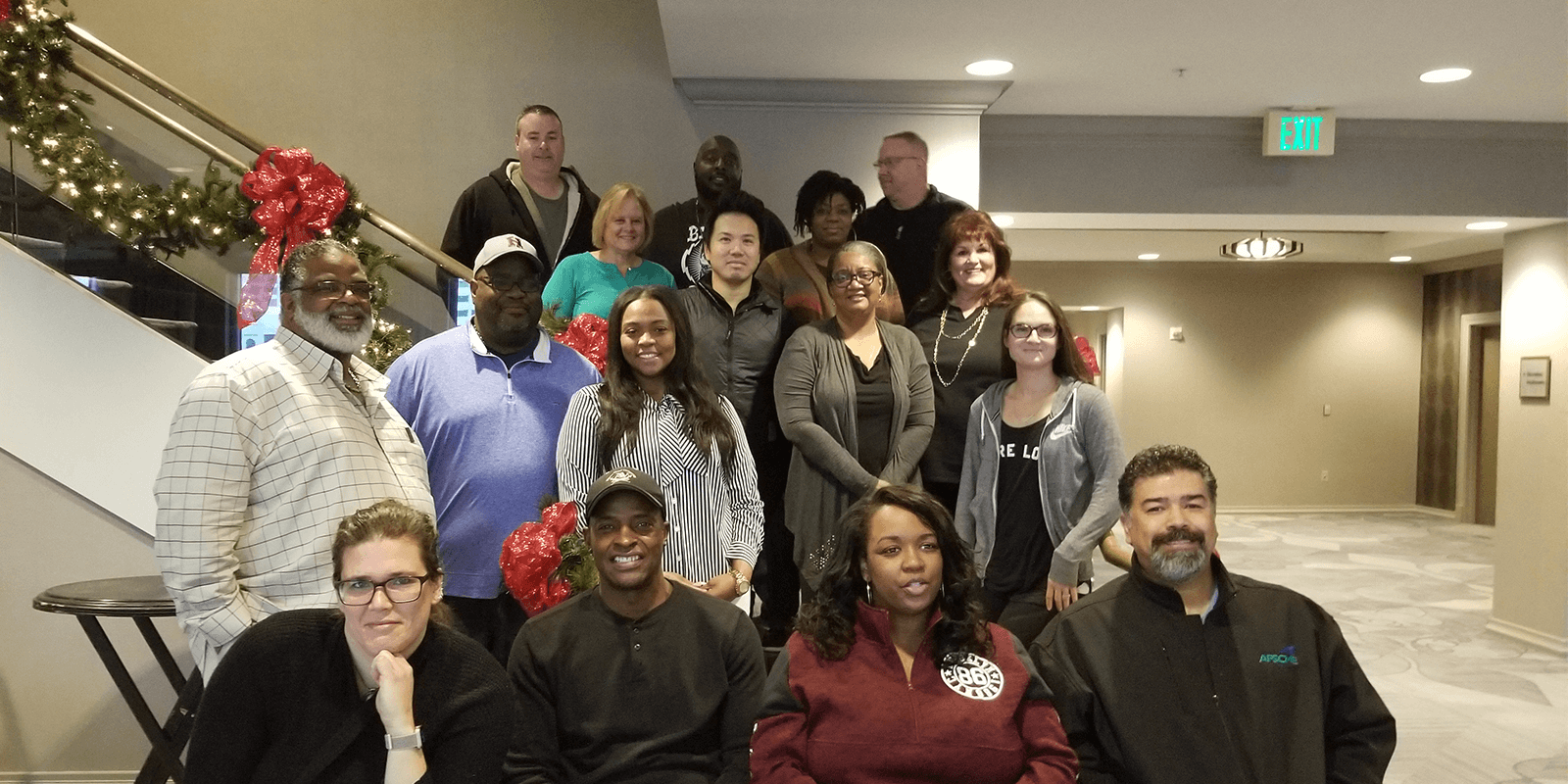Racial, social and economic equality are top priorities for AFSCME. That’s why Resolution 51 was adopted at AFSCME’s 42nd Annual Convention – to ensure that AFSCME remains a leader in promoting equality and respect, both within the labor movement and in the larger national conversation.
AFSCME is also committed to the goals of the resolution of fostering a fair economic system that benefits all people and promoting a civil dialogue across different communities. The Racial, Social and Economic Justice Working Group has been focused on implementing Resolution 51.
Recently, the working group met at AFSCME headquarters in Washington, D.C. to cement its vision for an equitable future, to have a frank dialogue about how many of us experience racism in our jobs and in our communities, and to strategize ways to share what they’ve learned at the local level.
Ralph Portwood, a corrections clerk at the Stateville Correctional Center in Joliet, Illinois, and a member of Local 1866 (Council 31) said, “It’s been eye opening to hear my sisters’ and brothers’ perspectives on racial and social justice issues.”
For Portwood, highlighting the ways in which different groups are affected by racism and injustice is “an ongoing process.” One of the biggest keys to making progress is: “You’ve got to be ready to listen. Everyone isn’t going to see things the same way. It’s about trying to come up with a resolution that can help bring both parties together. We’re all working for the same goal –to better people.”
Terrie Campbell, a staff representative for Michigan Council 25, acknowledged that injustice “starts from within and works its way outward.” The techniques developed by the group will allow AFSCME to address inequality at the local level, eventually expanding more broadly.
“We need to start corrective action within, otherwise we’re never going to reach those externally. If we’re going to resolve [these issues], we have to deal with the truth,” Campbell said.
The truth is that racism exists both within our union just as it does at work and in our communities, and it’s not always overt. That’s why implicit bias training, which helps identify built-in prejudices, has been shared across AFSCME.
Campbell also said that engaging at the community level on these issues is a great way to get people involved with AFSCME and to share what AFSCME is all about.
Alex Leung, a medical legal investigator in New York City’s Medical Examiner’s office and a member of Local 768 (DC 37), acknowledged that although DC 37 is diverse, “talking about racism and the issues that go on between members is always something that comes up. Understanding those issues is important.”
Rhonda Wallace, who sits on Maryland Council 67’s executive board and is a member of Local 1170, said “Being in this group has not just energized me, but enlightened me. We’re looking at inequality seriously. I’m excited to gain the knowledge and experience to help me take it back to my council.”
Addressing racism and injustice isn’t easy. It involves being open to frank and often uncomfortable conversations. But the success of the working group – and AFSCME as a whole –to have those conversations in an open and productive way are essential to our union’s success in the future.
The members of the Racial, Social and Economic Justice Working Group are:
- Alex Leung, DC 37
- Darrin Spann, Council 13
- Denise Berkley, CSEA
- Doug Moore, UDW
- Eddie Chism, Council 36
- Eddie Lawson, Council 8
- Judy Kuschel, Council 28
- Luster Howard, Local 3299
- Mark Bernard, Council 93
- Marsha Tulloch, Council 4
- Micaela Shapiro-Shellaby, Council 75
- Ralph Portwood, Council 31
- Rhonda Wallace, Council 67
- Rick Neyssen, Council 5
- Rocky Gutierrez, Council 18
- Se'Adoreia Brown, AFSCME Florida Organizing Council 979
- Shonna Quick-Crowell, Council 962
- Terrie Campbell, Council 25
- Alan Shanahan, Local 1902
